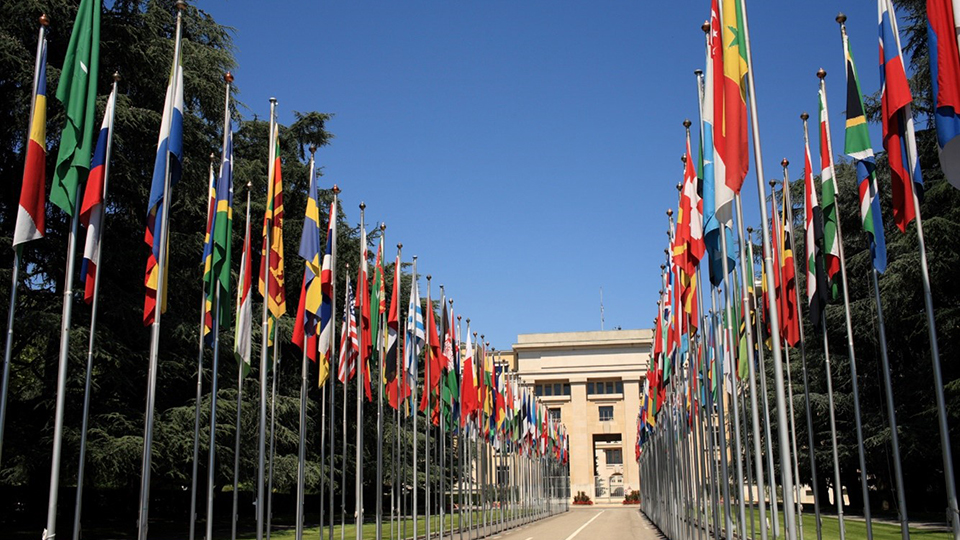Innovating Global Health: Insights from various sessions at the World Health Assembly 2024
June 28, 2024
The World Health Assembly (WHA) 2024 side events showcased groundbreaking innovations and collaborative efforts to tackle pressing global health challenges. During the week of 27-31 May, over 100 side events were organized by governments, industry, NGOs, academia and development partners across Geneva to discuss global health priorities, many of which touch on innovation in the health sector.
The sessions brought together experts and stakeholders from diverse fields to discuss emerging global health challenges and innovations including country experiences in tackling non-communicable diseases, antimicrobial resistance, local manufacturing, Fem Tech, Digital and AI for Health, among others. The importance of innovation, data-driven decision-making, public-private partnerships, and inclusive research was emphasized in facilitating global health advancements. We also heard from the new CEO of Gavi, the Vaccine Alliance, Dr. Sania Nishtar, and David Reddy, the new Director General of IFPMA, about their visions for the future.
Below is just a sampling of some of the many WHA 2024 side events that focused on innovation in the health sector.
Deep Tech for Global Health
A CERN workshop at the Global Health Forum explored how particle physics expertise can be leveraged for healthcare solutions. CERN, the European Organization for Nuclear Research, showcased its contributions to cancer treatment, 3D color X-rays, and digital health advancements. They emphasized their role as a “knowledge broker”, connecting stakeholders for tech transfer and seeking partnerships for further development. The workshop brought together diverse participants, including the Migrant Health Unit of the Geneva University Hospitals and organizations like Médecins Sans Frontières proposing innovative and accessible medical products such as diabetes management technologies.
Digital Innovations for Tuberculosis (TB) Detection
A WHA side event highlighted the potential of digital X-ray systems for early TB detection. These ultra-portable devices can screen patients, analyze images using AI within minutes, and detect not only TB but also other illnesses like cancer and COVID-19. However, wider access to this promising technology remains a challenge. Health officials from countries with a high TB burden like the Philippines, Pakistan, and Nigeria emphasized the need for collaboration between governments and the private sector to bridge this gap. TB survivor Naomi Wanjiru underscored the importance of early diagnosis and the potential of digital health to overcome barriers in access to care.

Vaccines for a World Free of Antimicrobial Resistance
The International Vaccine Institute (IVI) hosted a session on the role of vaccines in combating antimicrobial resistance (AMR) in low- and middle-income countries (LMICs). Panelists underscored the importance of both existing and new vaccines in this fight. Ethiopia’s Health Minister shared progress in vaccine development and local production, while Sweden showcased its long-term efforts to combat antibiotic resistance. Discussions highlighted the need for collaboration across sectors, strengthening regulatory frameworks, and investing in data collection to guide vaccine development and implementation.
Read about WIPO’s interview with Professor Soumyo Mukherji, the Madhuri Sinha Chair Professor in Biomedical Engineering at the Indian Institute of Technology in Bombay (IITB), a leading innovator of biosensors and bioinstrumentation, on IP and AMR.
Global South Leading the Way in One Health
Another panel discussion explored the role of the Global South in driving innovation for One Health, an approach that integrates human, animal, and environmental health to prevent pandemics. Panelists noted that discussions on One Health is focusing on zoonotic diseases. Effective interventions require community engagement and context-specific solutions that consider local consumption patterns and human-animal-livestock interfaces. Public-private partnerships and private sector innovations in sampling and surveillance were identified as crucial for advancing One Health. The discussion emphasized that overcoming the challenges of One Health requires not just technical solutions but also political commitment and cross-stakeholder collaboration.
- Find out more about how WIPO is working on One Health.
Advancing Health Equity Through Innovation
At a Devex CheckUp session on advancing health equity through innovation, participants highlighted that innovation in health does not always require high-tech solutions. The session acknowledged the significant role that high-tech solutions can play in developing countries, provided they are adapted to local contexts and environmental considerations. Major barriers to health innovation identified included a lack of political will, financing, infrastructure, and private sector engagement.

Supporting Africa’s Booming Health Innovation Landscape
Another key discussion at the Devex CheckUp focused on supporting Africa’s burgeoning health innovation landscape. Participants highlighted the importance of building infrastructure to analyze health systems across Africa. The session addressed the challenges of securing investment from large companies and the complications arising from donor-led financing, which often comes with restrictive clauses. Local startups face significant hurdles in obtaining WHO Performance, Quality, and Safety (PQS) certification due to prolonged timelines, leading some to focus on the private sector where requirements are fewer and business opportunities more certain.
Emphasis on Innovation
The WHA side events in 2024 highlighted the critical role of innovation and collaboration in addressing global health challenges. From CERN’s application of particle physics to healthcare solutions, to the use of digital X-ray systems for TB detection, and the development of vaccines to combat antimicrobial resistance, technological advancements are driving significant improvements in health outcomes. The discussions also underscored the importance of data-driven decision-making, public-private partnerships, and inclusive research that considers gender gaps and local contexts.
Role of WIPO
As the United Nations specialized agency for IP and innovation, WIPO plays a key role in facilitating the advancement of innovation as well as access to the resulting breakthroughs.
The WIPO Global Health Unit implements activities and partnerships demonstrating IP and innovation’s contributions to addressing global health challenges. Through strategic partnerships and projects, the Unit’s work demonstrates that IP is an enabler for both innovation of, and access to, health technologies and that maintaining a balanced global IP system can contribute to an innovation ecosystem that ensures access to health technologies for all.
The Global Health Unit assists on-going work on One Health, promoting discussions on voluntary licensing, and supporting young innovators from Low and Middle-Income Countries through the Global Health Innovation Fellowship.